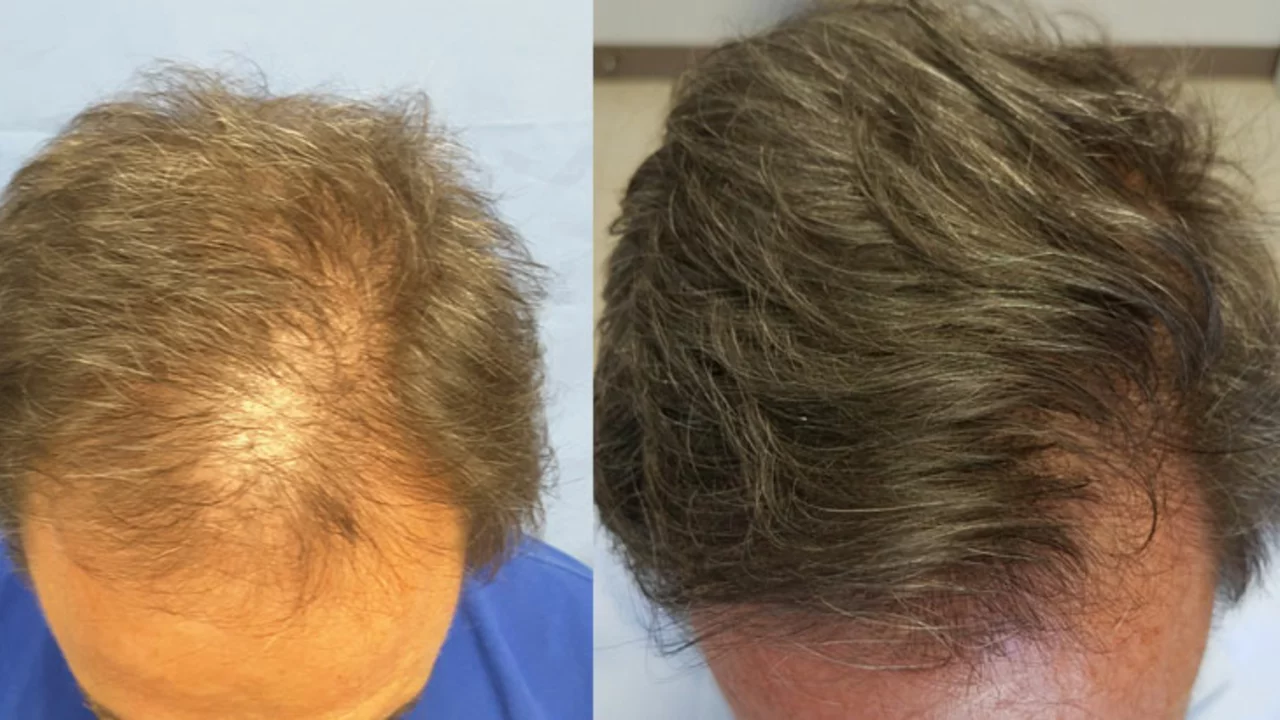Understanding the Role of Finasteride in Hair Health
Finasteride is a medication commonly used to treat hair loss, specifically male pattern baldness. It works by preventing the conversion of testosterone to dihydrotestosterone (DHT), a hormone that contributes to hair loss. While effective, some individuals decide to stop taking finasteride for various reasons, including side effects or personal preference. Stopping finasteride, however, can impact your hair health and may lead to hair loss.
The Initial Effects of Stopping Finasteride
Once you stop taking finasteride, the effects of the medication will start to wear off within a few weeks. This means that your body will begin converting testosterone to DHT again, which may lead to increased hair loss. It's important to understand this so you can be prepared for the changes that may occur.
Building a Healthy Hair Care Routine
One of the best ways to maintain hair health after stopping finasteride is to establish a healthy hair care routine. This includes washing your hair with a gentle, sulfate-free shampoo, conditioning regularly, and avoiding harsh chemical treatments. You should also make sure to protect your hair from heat and environmental damage by using heat protectant sprays and wearing a hat when in the sun.
Importance of a Balanced Diet
Your diet plays a significant role in hair health. To maintain strong and healthy hair, ensure your diet is rich in proteins, vitamins, and minerals such as iron, zinc, and vitamin C. These nutrients are essential for hair growth and can help prevent hair loss. You may also consider taking hair health supplements, but always consult with a healthcare professional before starting any new supplement regimen.
Stress Management and Hair Health
Stress can have a significant impact on hair health, often leading to hair loss or thinning. Therefore, managing your stress levels is crucial when trying to maintain hair health after stopping finasteride. Consider incorporating stress-reducing activities into your routine, such as yoga, meditation, or regular exercise.
Scalp Care is Key
Proper scalp care is often overlooked but is essential for healthy hair. Scalp massages can increase blood flow to the hair follicles, promoting hair growth. Additionally, using a scalp exfoliator can help remove dead skin cells and product buildup, creating a healthier environment for hair to grow.
Consider Alternative Treatments
There are several alternative treatments available for hair loss that you may want to consider after stopping finasteride. These include topical treatments like minoxidil, laser therapy, and even natural remedies like saw palmetto. It's important to research these options and consult with a healthcare professional to determine which treatment is best for you.
Regular Check-ups with Your Healthcare Provider
Finally, regular check-ups with your healthcare provider are essential. They can monitor your hair health, provide advice, and suggest treatments if necessary. If you're experiencing significant hair loss after stopping finasteride, don't hesitate to seek professional help. Hair loss can be a sign of other underlying health issues, so it's important to take it seriously.


Khanyisa Mhlongo
July 16, 2023 AT 16:38Stephanie Cepero
July 16, 2023 AT 20:07Chloe McDonald
July 17, 2023 AT 08:17Nancy Lowry
July 18, 2023 AT 02:22Isabel Piaggi
July 18, 2023 AT 15:29Manvika Gupta
July 18, 2023 AT 19:29Tom McInnes
July 19, 2023 AT 02:05Tracy Blake
July 19, 2023 AT 08:59Leo Lee
July 20, 2023 AT 02:25